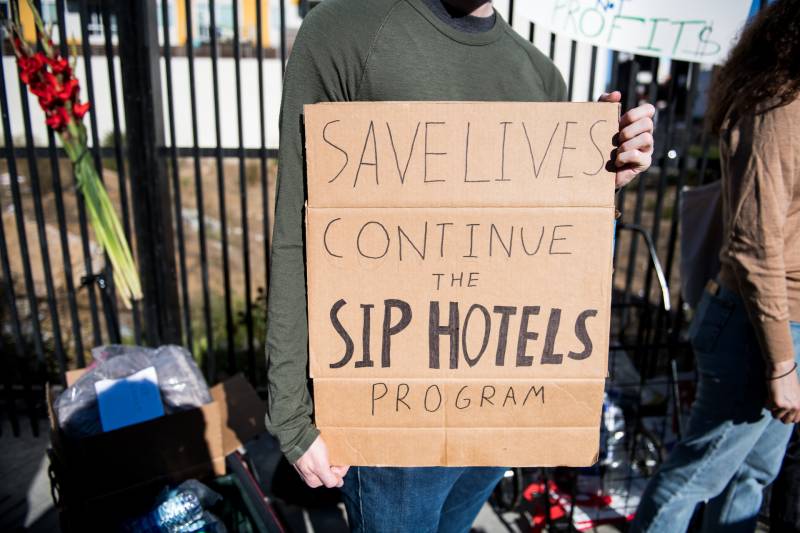California’s Project Roomkey program to house elderly and vulnerable homeless people in hotels will now be fully reimbursed by the federal government through the end of September, according to the Federal Emergency Management Agency.
FEMA also says it's going to pay local governments for eligible expenses retroactively to the beginning of the pandemic.
That's welcome news for cities and counties, which up until now have been picking up 25% of the tab to house the homeless in shelter-in-place hotels.
San Francisco’s program, which currently includes 25 hotels, costs $15 million to 18 million a month, according to the mayor’s office.
Last year, the city considered closing the program because of fears that FEMA funding would run out. The San Francisco Board of Supervisors has often pushed for expanding the number of hotels, while the mayor's office pushed for caution — with the two sides frequently butting heads.
The Board of Supervisors passed legislation in April ordering the mayor to secure more hotel rooms for the Roomkey program. More recently in December, they ordered the mayor to continue moving new homeless people into available hotel rooms.
"FEMA taking this position and paying for these rooms retroactively is a statement that bringing people in was the right thing to do and is the right thing to do moving forward," San Francisco Supervisor Matt Haney said.
Mayor London Breed has directed staff to consider acquiring more hotels to expand the program.
Abigail Stewart-Kahn, interim director of the San Francisco Department of Homelessness and Supportive Housing, said the city is continuing to "fill all the hotels" to 100% capacity and is evaluating whether or not hotels have the capacity to "do more."
According to the city, however, they can't guarantee housing for everyone who has been in a hotel, beyond FEMA's reimbursement timeline, which runs through September.
In a letter to community partners, the department wrote, "We must be very clear about this – the City is interested in expanding the [shelter in place] model if both hotels and providers can be secured but we do not have the housing resources to provide housing after FEMA reimbursement stops and the SIP hotels close."
It's still unclear how FEMA's new funding promise will impact the city’s budget, which is facing a multimillion-dollar deficit. The city controller's office is expecting additional guidance from FEMA in the coming days.

